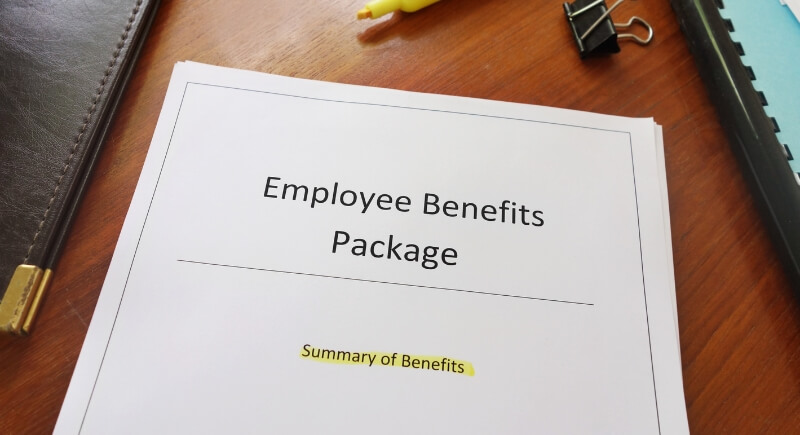People switch jobs for all kinds of reasons, and sometimes, it does lead to better pay or a stronger career path. Still, jumping too often can start to wear on your wallet in ways that aren't always obvious. If you're not factoring in benefits, timing, or long-term goals, it's easy to lose more than you gain. Before you make another leap, watch out for these financial red flags tied to job hopping.
Loss of Important Benefits

Credit: Canva
Every time you hop to a new job, there's a decent chance you're walking away from perks you've already earned. Employers often set waiting periods for 401(k) matching, stock options, or profit-sharing plans, which means leaving early wipes those off the table.
Forfeiture of Sign-On Bonuses

Credit: Getty Images
You know that sign-on bonus or sweet stock package you scored at your last gig? If there's a clawback clause or vesting period, quitting early may mean paying that money back or never seeing it at all. Many tech companies, including Amazon and Google, spread equity over four years. Bailing early means saying goodbye to your golden carrots.
Gaps in Health Insurance Coverage

Credit: Getty Images
Skipping out before your new benefits kick in could mean paying for coverage out of pocket. Unless your new job starts benefits immediately, you're looking at COBRA or marketplace insurance to bridge the gap. That gets expensive fast, as COBRA can cost over $600 a month, and it's not known for being generous in coverage.
Missed Vesting of Stock Options

Credit: pixabay
Equity compensation might sound exciting, but it's often locked behind a vesting schedule. Leave before you hit that milestone, and those stock options vanish like they were never promised. At places like Meta or Salesforce, equity is structured to reward long-haulers.
Increased Tax Liabilities

Credit: Getty Images
Switching jobs mid-year can bump you into a higher tax bracket without you realizing it. If each employer withholds taxes as if they're your only one, you might owe the IRS more money at tax time. Failing to account for combined income can lead to under-withholding and penalties. Nobody enjoys that surprise in April.
Reduced Eligibility for Unemployment Benefits

Credit: Canva
Let's say your latest job didn't work out, and now you're unemployed—well, if you haven't been somewhere long enough or didn't earn enough, your benefits could take a hit. States have different rules, but most look at your recent work history. Too many quick job changes make it harder to qualify for decent support when you need it.
Higher Relocation Expenses

Credit: pixelshot
Every new gig in a new city means packing boxes, hiring movers, and shelling out for deposits or flights. While some companies offer help, many don't, especially if you haven't been there long. Unless it's written into your offer, the cost falls on you. U-Haul and Airbnb can eat your paycheck faster than you'd think.
Loss of Seniority Perks

Credit: freepik
All that time you spent climbing the internal ladder resets the second you walk out the door. Perks like extra vacation days, early access to promotions, or first dibs on holiday time often go to those with tenure. Starting fresh might sound exciting, but it usually means earning every privilege all over again from scratch.
Limited Access to Professional Development Funds

Credit: Getty Images
Training budgets aren't always open to newcomers. If you bounce before your probation ends or right after onboarding, you probably won't see a dime toward certifications or courses. Employers usually reserve those funds for people sticking around. That means you could miss out on résumé-boosting perks that others get simply by hanging in longer.
Impact on Loan Approval Due to Employment Instability

Credit: Getty Images
Banks and lenders like stable income—it makes you look trustworthy. If your job history looks more like a playlist shuffle, lenders might hit pause on approving mortgages, car loans, or even high-limit credit cards. Many ask for at least two years of steady work. Without it, those big-ticket dreams can get stalled real fast.
Reduced Severance Packages

Credit: freepik
Severance isn't guaranteed, and short-timers often get the short end. Companies may prioritize those with longer tenure if layoffs happen. A few months on the job might mean walking away with little or nothing, even if others get weeks of pay. HR policies usually tie severance to time served, not how hard you worked.
Loss of Accrued Paid Time Off

Credit: Getty Images
Most companies don't pay out unused vacation unless you've stayed long enough or it's legally required. If you've job-hopped before hitting that threshold, all your saved-up days could disappear. States vary, and company policies matter, but quitting early often means giving up those PTO hours you never took. It's like leaving money on the table.
Higher Commuting Costs

Credit: Getty Images
Changing jobs might land you farther from home and closer to traffic. That new route could rack up gas bills and tolls or even require parking fees. And if public transit is involved, you might be buying monthly passes again. Over time, these small costs pile up faster than you'd expect and eat into your take-home pay.
Missed Profit-Sharing Opportunities

Credit: Getty Images
Profit-sharing plans reward employees for staying put. If your new company offers this perk, the catch is you usually have to be around at year-end or beyond to collect. Leaving before then can mean missing out entirely. That chunk of money could've padded your savings if you'd waited a little longer before jumping ship.
